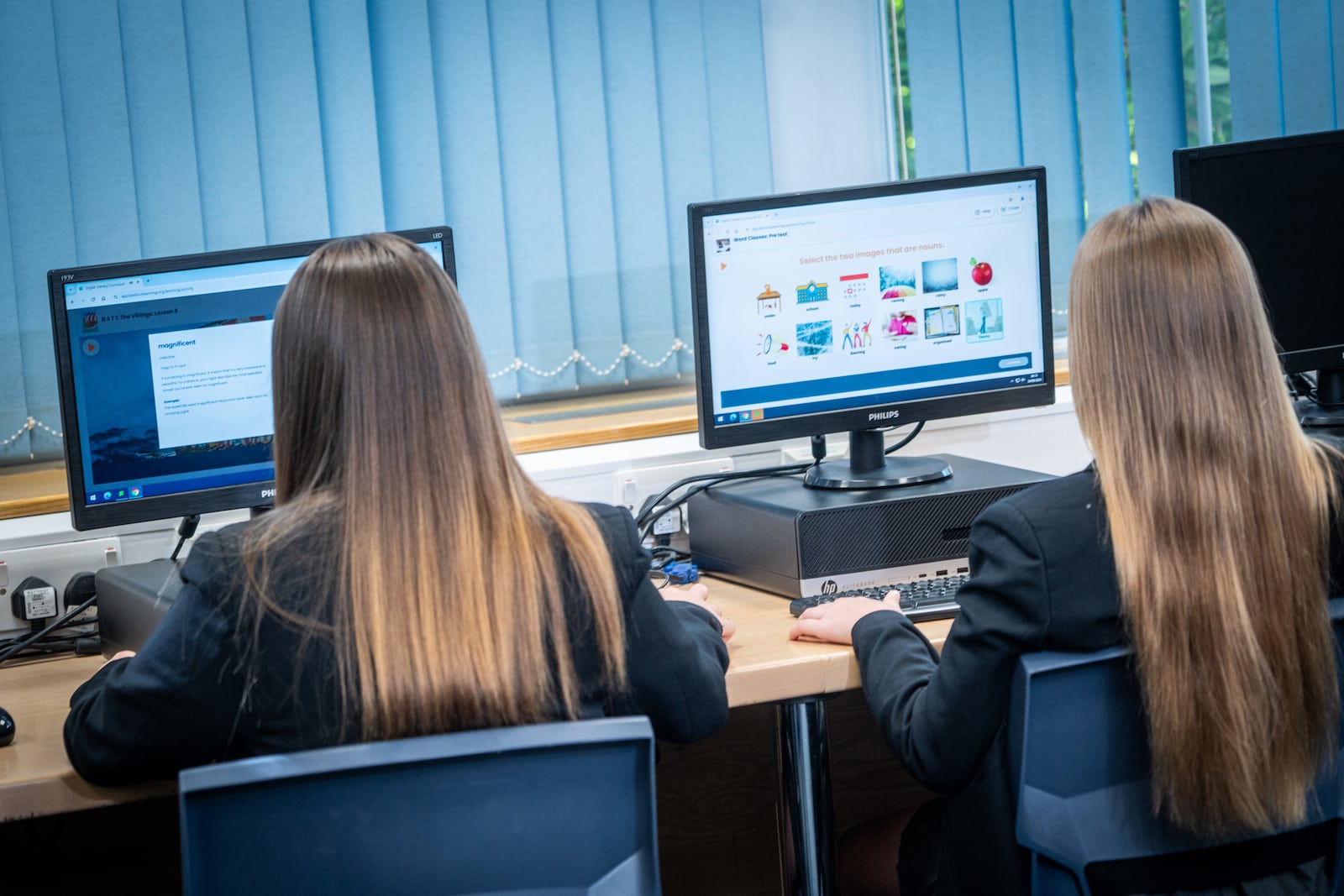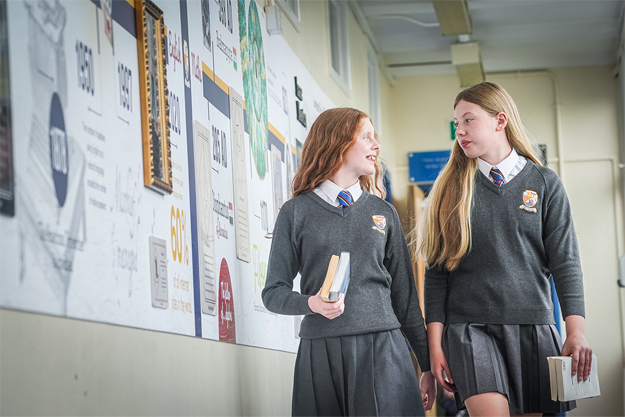We aim to develop our students to be well rounded and enthusiastic mathematicians by developing skills of resilience and independence.
We will share our love of maths to inspire our students to take a logical and systematic approach to problem solving, building on prior knowledge and making mathematical connections. By using examples from everyday life and links to other subjects to explain and reinforce mathematical concepts, we make Mathematics real and accessible, inclusive of ability.
As a knowledge-based curriculum we believe that knowledge underpins and enables the application of Mathematical skills. At both KS3 and KS4, starters revolve around the use of retrieval practice and interleaving to help students recall knowledge. Use of end of unit diagnostic testing and developmental feedback is a regular feature of our Maths lessons. All students have individual access to Mathswatch and are set structured revision tasks related to the curriculum in preparation for assessments. Weekly homework tasks will give students further opportunities to recall key facts and practice skills.
All students in key stage 3 follow the national curriculum for mathematics which serves as the building blocks to GCSE. Our curriculum has been carefully sequenced so that topics can be built upon each year, supporting our mastery approach and allowing for interleaving and progression with plenty of opportunities to revisit topics within modules.
When students enter St Bede’s they are placed in mathematics based on their KS2 prior attainment. This gives us a baseline from which to build upon and students can make progress and move between sets as appropriate. Throughout key stage 3 students undertake both formative and summative assessments which help them focus on what knowledge they have acquired but also what skills they still need to develop. Regular feedback is given to all students to help them further their progress and expand their knowledge base.
At St Bede’s all students follow a scheme of work that complements the AQA GCSE Mathematics examinations and at the end of their Year 11 are awarded a grade from 9 – 1. All students will sit three exams each lasting for 90 minutes, two of which will be calculator and the first paper will be non-calculator. Each exam will be worth one third of the total marks required.
GCSE Mathematics is a tiered course which means that some students will be entered for the Foundation exam, covering grades 5 – 1 and others for the Higher exam, covering grade 9 – 4. Final decisions about tier of entry are not made until December of Y11 and so the course that all students follow is sequenced to allow access to all the key stage 4 curriculum. Teachers will decide when it is appropriate for students to be moved on to the next topic after ensuring that prior knowledge is secure.
Students will undertake regular assessments throughout year 10 & 11 so they can understand what knowledge and skills they have and which they have yet to acquire. Learning will need to be supported independently at home and specific focused tasks will be set to complete to help further students’ progress.
In Maths we promote dignity of the human person by recognising all students learn in different ways and styles and our curriculum is designed to be inclusive, supportive and challenging for all so that all students can reach their potential in Math’s. In our lessons we treat each other with respect and allow for students to answer questions and voice their opinions in a safe environment. We encourage students to take pride in their work and treat shared resources with respect, considering the environment and the needs of others. Some of the topics we cover, such as financial awareness and statistics help to enrich and develop the whole student by widening their appreciation of world wide issues or those that affect our communities.
Within the Department there are plenty of opportunities for pupils of all abilities and ages to enrich their maths and/or problem-solving skills by attending one of our lunch-time clubs:
- Wednesday - Dungeons & Dragons Club
- Thursday - Chess Club
- Friday - Coding Club
Throughout the year there are plenty of enrichment opportunities in maths as we run a trip to Bletchley Park to uncover the story of our national codebreakers, we invite the University of Liverpool Outreach team to run maths roadshows with KS3 pupils and in KS4 we take pupils along to maths taster days and maths related lectures at local colleges and enter team competitions at the University of Liverpool Maths School and Edge Hill University.
As a department we encourage pupils to enter UKMT Maths Challenges and have many successes over the last few years with pupils achieving Merits, Gold, Silver & Bronze certificates for both the Junior & Intermediate Maths Challenges. Some of pupils have scored so highly in the competitions then are then invited so enter the Kangaroo's and maths Olympiad's.
Throughout the year there are many challenges that pupils of all ages & abilities can get involved in. To name a few that we had successes with in the last two years and will continue to enter pupils for:
- 2023 - 24 Raspberry Pi Challenge (first place in the 11-14 category)
- 2024-25 The National Cipher Challenge (Joint first with our winning team invited to the prize-giving ceremony in Bletchley Park)
- 2024 - 25 The National Innovation Challenge (first place with the winning team going to MIT in Boston in October 2025)
- 2024 - 25 The 10X Challenge, encouraging entrepreneurial skills
We also encourage all pupils to seek help with their maths homework at lunchtimes where are staff are always available in their teaching rooms.


